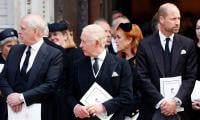Experts call for joint efforts to promote cadaver organ transplants
Experts at a national conference on illegal organ transplants in Pakistan urged all sections of the society to join hands for the promotion of deceased organ donations in the country so that the lives of thousands of patients facing end-stage organ diseases could be saved.
The conference, titled ‘Illegal Transplants of Organs and Promotion of Deceased Organ Promotion in Pakistan’, started at the Sindh Institute of Urology and Transplantation (SIUT) here on Friday to discuss means to promote deceased organ donations to curb illegal transplants of organs.
Speakers, including transplant surgeons, legal experts and journalists, called for galvanizing the role of society to achieve the desired goals.
The two-day conference-cum-workshop is being organised under the aegis of the Law and Justice Commission of the Supreme Court of Pakistan in collaboration with the SIUT to discuss the issue, which holds great importance for the well-being and betterment of the society.
Representative from a cross-section of society, including legal and government, medical professionals, media and civil society, attended the opening session. This was the first occasion where all the stakeholders came together to work out a strategy and devise a plan which could save thousands of lives of patients who are losing their battles for life due to organ failures.
In his inaugural address, SIUT Director Prof Adib Rizvi traced the history of transplant procedures in Pakistan. He also pointed out impediments to the promotion of the deceased organ donation programme.
Lauding the Supreme Court for taking suo moto action, he said it was heartening to see that all the stakeholders were on the same page. Professor Rizvi, who performed the first kidney transplant at the SIUT in 1985, said “no lip service” would serve any purpose.
He also reminded the stakeholders, including community, media, doctors, and members of civil society and law enforcing departments, that it was their duty to come forward and support the programme and bring about a positive change in society.
Hameed Haroon, CEO Dawn Group, lauded the efforts of the SIUT to harness the transplantation programme but added that “the battle is still going on” where we have to strengthen the rules passed by the legislature and implement them.
Naziha Ali, an investigative journalist, highlighted her experience in unearthing the illicit organ trade in Pakistan. Citing poverty as a root cause of illegal transplantation, she said that the poor segment was vulnerable to fall prey.
Prominent lawyer Munir Malik, who discussed the legal side of curbing the illegal trade of organs and the steps required for deceased organ transplants, said there was no need to change the law, as the rules could fulfil the needs without difficulty. He stressed the need for commitment on the part of society.
Others who spoke at the session included Maulana Shahtaz, a religious scholar, who said that all schools of religious interpretations in Islam agree that saving a human life is most sacred and if one saves the life of one human being it is as if he has saved the entire humanity. Retired Justice Majida Rizvi also spoke.
The highlight of the daylong proceedings was poetry recited by famous poetess Zahra Nigha, who dedicated her poetry to those who were end-stage organ failure patients and needed a new lease of life.
During the proceedings, various workshops were also held to formulate recommendations on a variety of related subjects, including public education, reaching the people, use of media and legal and government implementation.
-
 Gigi Hadid Talks About 'relieving Tension' Amid Having Hashimoto's Disease
Gigi Hadid Talks About 'relieving Tension' Amid Having Hashimoto's Disease -
 Sarah Ferguson Is 'persona Non Grata', Prince William Makes It Clear To Everyone
Sarah Ferguson Is 'persona Non Grata', Prince William Makes It Clear To Everyone -
 Northern Lights Alert On Valentine’s Day: How, Where & Best Time To Watch Auroras
Northern Lights Alert On Valentine’s Day: How, Where & Best Time To Watch Auroras -
 Dennis Quaid Reveals What Keeps His Marriage To Laura Savoie Healthy
Dennis Quaid Reveals What Keeps His Marriage To Laura Savoie Healthy -
 Mustafa Suleyman Says Microsoft Is Building Its Own AI Superintelligence
Mustafa Suleyman Says Microsoft Is Building Its Own AI Superintelligence -
 Jessica Alba, Cash Warren Finalize Divorce After 16 Years Of Marriage
Jessica Alba, Cash Warren Finalize Divorce After 16 Years Of Marriage -
 China’s AI Boom Takes Center Stage At Spring Festival One Year After DeepSeek Stirred The Industry
China’s AI Boom Takes Center Stage At Spring Festival One Year After DeepSeek Stirred The Industry -
 James Van Der Beek Called His Sixth Child Jeremiah 'healing For Us' Before His Death
James Van Der Beek Called His Sixth Child Jeremiah 'healing For Us' Before His Death -
 Elon Musk Vs Reid Hoffman: Epstein Files Fuel Public Spat Between Tech Billionaires
Elon Musk Vs Reid Hoffman: Epstein Files Fuel Public Spat Between Tech Billionaires -
 Gordon Ramsay Denies Victoria Beckham Got Handsy With Brooklyn At His Wedding
Gordon Ramsay Denies Victoria Beckham Got Handsy With Brooklyn At His Wedding -
 Gordon Ramsay Makes Unexpected Plea To Brooklyn As He Addresses Beckham Family Feud
Gordon Ramsay Makes Unexpected Plea To Brooklyn As He Addresses Beckham Family Feud -
 Prince Harry Warns Meghan Markle To 'step Back'
Prince Harry Warns Meghan Markle To 'step Back' -
 Selena Gomez Explains Why She Thought Lupus Was 'life-or-death'
Selena Gomez Explains Why She Thought Lupus Was 'life-or-death' -
 New Zealand Flood Crisis: State Of Emergency Declared As North Island Braces For More Storms
New Zealand Flood Crisis: State Of Emergency Declared As North Island Braces For More Storms -
 Nancy Guthrie Case: Mystery Deepens As Unknown DNA Found At Property
Nancy Guthrie Case: Mystery Deepens As Unknown DNA Found At Property -
 James Van Der Beek's Brother Breaks Silence On Actor's Tragic Death
James Van Der Beek's Brother Breaks Silence On Actor's Tragic Death



